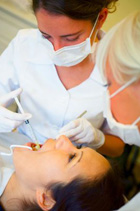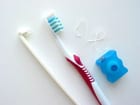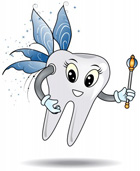 It is very important to look after your teeth and gums. It is all to easy to assume that they will be fine as long as they are not causing you any problems and carry on with your simple routine of brushing in the morning and evening. But in reality, your teeth need a lot more care and when it’s too late you really might regret not being more careful about how you took care of them.
It is very important to look after your teeth and gums. It is all to easy to assume that they will be fine as long as they are not causing you any problems and carry on with your simple routine of brushing in the morning and evening. But in reality, your teeth need a lot more care and when it’s too late you really might regret not being more careful about how you took care of them.
Tooth and gum disease is not a laughing matter. Just ask anyone who has suffered from the pain of toothache or an abscessed tooth. Even those who take relatively good care of their teeth with effective brushing and flossing can still be at risk form dental or periodontal disease. It is important that you make sure you see your dentist every six months to keep your teeth as clean and healthy as possible.
Tooth and gum disease begins when bacteria and plaque is allowed to build up on the surface of the teeth or gums. This reacts and releases an acid, which gradually erodes the protective enamel layer of the teeth and on the gums it causes the tissue to break down. In both cases this may ultimately lead to infection which can be very painful and lead to lost gum tissue or even lost teeth. Not only will this be very unpleasant but may also cost a small fortune in dental bills to restore the appearance of the teeth.
Looking after your teeth only takes a few minutes a day extra cleaning and half an hour every six months at a Leeds dentist. It is a small sacrifice to protect yourself from what may otherwise be many months or even years of anxiety and suffering because of unhealthy teeth.





 Plaque is the soft, sticky substance that surrounds the teeth. It is mostly made from bacteria and releases acid that dissolves minerals in the enamel of the tooth, causing dental cavities, tooth decay and infections. Plaque that builds up around the gums can break down gum tissue leading to painful gum disease, which results in bleeding and possibly even heart disease. It is therefore very important to keep plaque under control with effective brushing and flossing at home.
Plaque is the soft, sticky substance that surrounds the teeth. It is mostly made from bacteria and releases acid that dissolves minerals in the enamel of the tooth, causing dental cavities, tooth decay and infections. Plaque that builds up around the gums can break down gum tissue leading to painful gum disease, which results in bleeding and possibly even heart disease. It is therefore very important to keep plaque under control with effective brushing and flossing at home. Looking after you teeth is one area where it is very true that prevention is better than cure. Although a large number of people are either afraid or ‘too busy’ to visit the dentist, it may turn out to be one of the worst decisions you’ll ever make.
Looking after you teeth is one area where it is very true that prevention is better than cure. Although a large number of people are either afraid or ‘too busy’ to visit the dentist, it may turn out to be one of the worst decisions you’ll ever make. Bad breath, also commonly called halitosis, is usually the result of poor dental hygiene but can also be the sign of wider health problems. It is frequently made worse by the foods you eat and other lifestyle habits such as smoking.
Bad breath, also commonly called halitosis, is usually the result of poor dental hygiene but can also be the sign of wider health problems. It is frequently made worse by the foods you eat and other lifestyle habits such as smoking. There is no feeling quite as clean as that of just having had your teeth cleaned by a dentist or dental hygienist. No mater how thoroughly you brush and floss at home you can never get that ‘straight from the dentist’ clean feeling. Dentists and hygienists use techniques known as scaling and polishing to clean teeth as thoroughly as possible, which while sometimes a little unpleasant, are very necessary to keep teeth healthy.
There is no feeling quite as clean as that of just having had your teeth cleaned by a dentist or dental hygienist. No mater how thoroughly you brush and floss at home you can never get that ‘straight from the dentist’ clean feeling. Dentists and hygienists use techniques known as scaling and polishing to clean teeth as thoroughly as possible, which while sometimes a little unpleasant, are very necessary to keep teeth healthy. It is never too late to improve the appearance of your teeth and this doesn’t necessarily mean shelling out thousands of pounds for expensive cosmetic dentistry. There are many things you can do at home or small dental procedures that can make your teeth look cleaner and healthier.
It is never too late to improve the appearance of your teeth and this doesn’t necessarily mean shelling out thousands of pounds for expensive cosmetic dentistry. There are many things you can do at home or small dental procedures that can make your teeth look cleaner and healthier. Many people’s answer to dealing with bad breath is to reach for the nearest bottle of mouthwash and have a gargle but is this the best solution to treating halitosis? It would seem that the answer is no. Indeed in the United States, after rigorous testing in the 1970s by the Food and Drug administration, mouthwash products are no longer allowed by law to claim that their products stop bad breath.
Many people’s answer to dealing with bad breath is to reach for the nearest bottle of mouthwash and have a gargle but is this the best solution to treating halitosis? It would seem that the answer is no. Indeed in the United States, after rigorous testing in the 1970s by the Food and Drug administration, mouthwash products are no longer allowed by law to claim that their products stop bad breath. Our dental hygiene is one aspect of our overall health that we can have direct control when it comes to preventing disease. Unlike other aspects of our body where disease can strike at any time, tooth decay and gum disease can be prevented by an active and efficient daily dental hygiene routine.
Our dental hygiene is one aspect of our overall health that we can have direct control when it comes to preventing disease. Unlike other aspects of our body where disease can strike at any time, tooth decay and gum disease can be prevented by an active and efficient daily dental hygiene routine. The purpose of brushing and flossing is to reduce the number of bacteria in the mouth that feed on food particles left over from eating. Bacteria feast on this food debris producing acids which cause damage to the enamel of the teeth, breaking it down and attacking the sensitive centre of the tooth. As if this wasn’t bad enough, bacteria and decaying food matter also cause over 90 per cent of cases of bad breath.
The purpose of brushing and flossing is to reduce the number of bacteria in the mouth that feed on food particles left over from eating. Bacteria feast on this food debris producing acids which cause damage to the enamel of the teeth, breaking it down and attacking the sensitive centre of the tooth. As if this wasn’t bad enough, bacteria and decaying food matter also cause over 90 per cent of cases of bad breath. Suffering from bad breath can be very embarrassing as it can be very difficult to disguise. It often leads to a loss of confidence and the avoidance of social situations altogether but it is relatively easily treated. Over nine out of ten cases of bad breath are caused by poor standards of oral hygiene which if improved could mean an end to horrible halitosis.
Suffering from bad breath can be very embarrassing as it can be very difficult to disguise. It often leads to a loss of confidence and the avoidance of social situations altogether but it is relatively easily treated. Over nine out of ten cases of bad breath are caused by poor standards of oral hygiene which if improved could mean an end to horrible halitosis.

